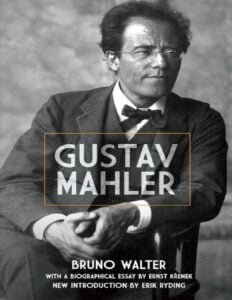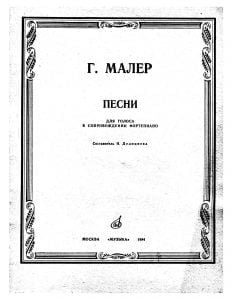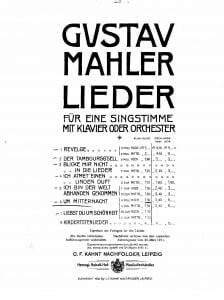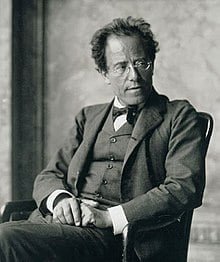Table of Contents:
Alexandre Tharaud plays his own transcription of Mahler’s Adagietto from the 5th symphony.
Symphony No. 5 in C-Sharp Minor, Pt. 3: IV. Adagietto (Transcr. Tharaud) · Alexandre Tharaud
Piano: Alexandre Tharaud
Transcriber: Alexandre Tharaud
Composer: Gustav Mahler
Please, subscribe to our Library. Thank you!
Get the Adagietto sheet music, piano solo arrangement, from our Library
(3 versions in the #SMLPDF, arranged by O. Singer, A. Tharaud and by J. Gribben)
Gustav Mahler (7 July 1860 – 18 May 1911) was an Austro-Bohemian Romantic composer, and one of the leading conductors of his generation. As a composer, he acted as a bridge between the 19th century Austro-German tradition and the modernism of the early 20th century.

Please, subscribe to our Library. Thank you!
While in his lifetime his status as a conductor was established beyond question, his own music gained wide popularity only after periods of relative neglect, which included a ban on its performance in much of Europe during the Nazi era.
After 1945 his compositions were rediscovered by a new generation of listeners; Mahler then became one of the most frequently performed and recorded of all composers, a position he has sustained into the 21st century.

In 2016, a BBC Music Magazine survey of 151 conductors ranked three of his symphonies in the top ten symphonies of all time.
Best Sheet Music download from our Library.
Born in Bohemia (then part of the Austrian Empire) to Jewish parents of humble origins, the German-speaking Mahler displayed his musical gifts at an early age. After graduating from the Vienna Conservatory in 1878, he held a succession of conducting posts of rising importance in the opera houses of Europe, culminating in his appointment in 1897 as director of the Vienna Court Opera (Hofoper).

During his ten years in Vienna, Mahler—who had converted to Catholicism to secure the post—experienced regular opposition and hostility from the anti-Semitic press.
Nevertheless, his innovative productions and insistence on the highest performance standards ensured his reputation as one of the greatest of opera conductors, particularly as an interpreter of the stage works of Wagner, Mozart, and Tchaikovsky. Late in his life, he was briefly director of New York’s Metropolitan Opera and the New York Philharmonic.

Mahler’s œuvre is relatively limited; for much of his life, composing was necessarily a part-time activity while he earned his living as a conductor. Aside from early works such as a movement from a piano quartet composed when he was a student in Vienna, Mahler’s works are generally designed for large orchestral forces, symphonic choruses and operatic soloists.
These works were frequently controversial when first performed, and several were slow to receive critical and popular approval; exceptions included his Second Symphony, Third Symphony, and the triumphant premiere of his Eighth Symphony in 1910.

Some of Mahler’s immediate musical successors included the composers of the Second Viennese School, notably Arnold Schoenberg, Alban Berg and Anton Webern. Dmitri Shostakovich and Benjamin Britten are among later 20th-century composers who admired and were influenced by Mahler. The International Gustav Mahler Institute was established in 1955 to honor the composer’s life and achievements.
The concert pianist’s life
Beatrice Berrut, born in the Swiss Alps in the canton of Valais, spends most of her childhood with her sister conquering the hills and mountains of her home valley. Barely two years old she learns how to ski and since then her addiction to the white powdery slopes has remained unabated. The inspiration found in the marvellous landscape, the stoic Alpine giants carved ancient rock, and the fascination by nature itself accompany her to this day on her musical journeys.
Thanks to her mother, Beatrice soon encounters the enchanting sound of the piano as there isn’t a night that the two sisters are not lulled to sleep by the “Kinderszenen” (Scenes of Childhood) by Schumann or “Lieder ohne Worte” (Songs without Words) by Mendelssohn.
Completely captured by the beautiful and brilliant harmonies of this big black wooden instrument, Beatrice finally decides to take her first piano lesson at the age of eight. Each day, she eagerly practices with great curiosity and devotion, since she is discovering a new world full of endless imagination and sound that is ready to be explored. A few years later, Beatrice is utterly absorbed by the sound waves of the piano. Among numerous albums collected by her parents, Beatrice finds a very particular one:
She listens to the second Piano Concerto by Johannes Brahms for the very first time. It feels like an existential shock, the world as she knew it crumbled and a door to infinity opened. Sleepless nights ensue, where Beatrice virtually conducts Brahms concerto, gazing at the ceiling from her bed. Suddenly, everything makes sense: it is her mission to serve this music coming from another world. She will be a pianist.
From that moment of clarity, things follow a natural order. As a teenager, in-between long hours of hard work, Beatrice wanders along the shores of Lake Geneva, imagining composers and poets of the past finding their inspiration in this natural reservoir of beauty, just like her. Liszt, who visited Switzerland many times and fell in love with the country, becomes an important part of her life. The Vallée d’Obermann that inspired him, is where Beatrice grew up, and in his music she recognises her own quest for meaning in her mountain wanderings.
